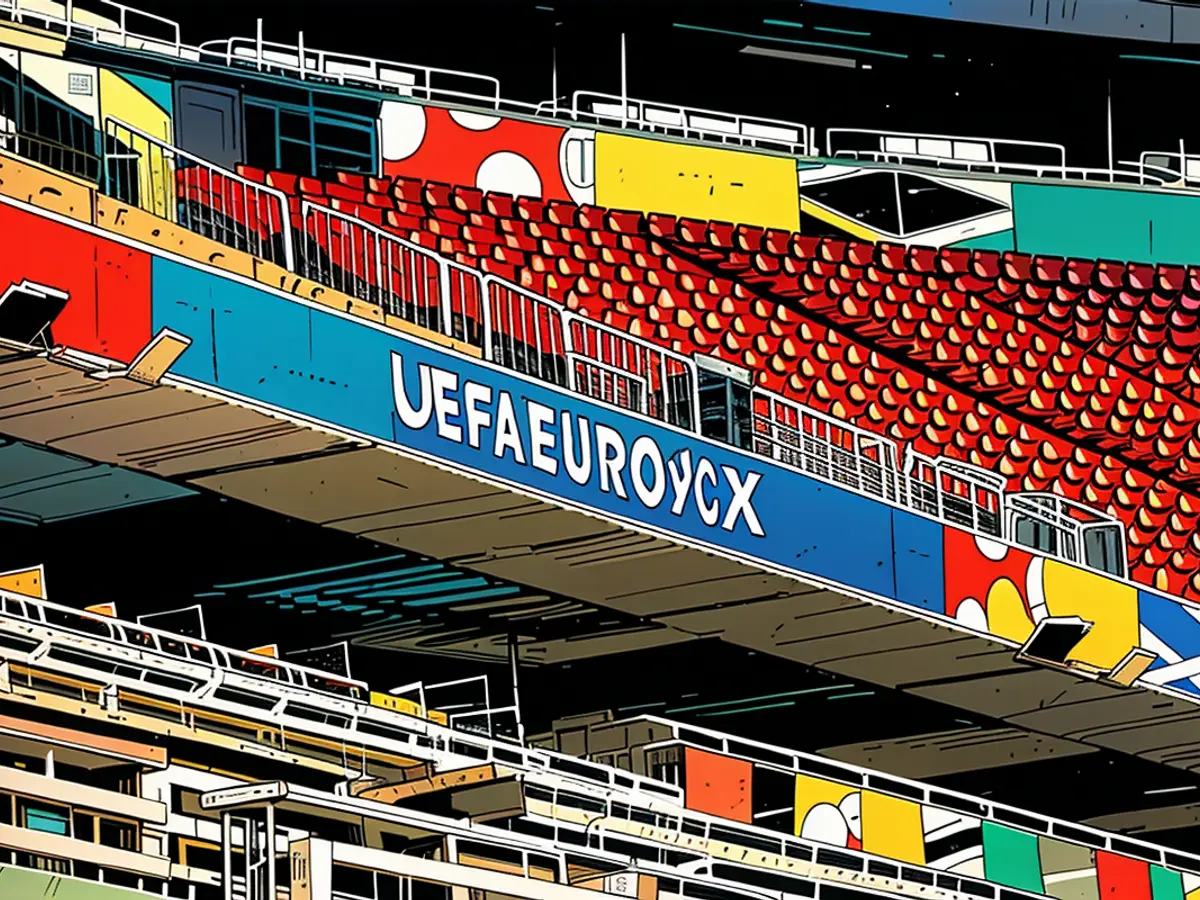The German economic outlook persists in wishing for a summer miracle.
The UEFA European Football Championship isn't just about delivering sports excitement, it's also meant to benefit the economy. But it looks like this won't be the case, as per economists' findings. And Germany's 2006 World Cup experience serves as a clear indicator.
Much like fans expect another summer fairy tale like the 2006 World Cup, so does the German economy. Millions of football enthusiasts from within and outside the country, an exciting atmosphere, and a successful national team could all contribute towards a booming economic summer. Not according to the Leibniz Institute for Economic Research Halle (IWH)'s analysis, which was shared with "Handelsblatt" in advance; Germany's largest economy is unlikely to experience growth stimuli from the upcoming European Championship. IWH director Oliver Holtemöller confirms, "Don't expect any significant overall economic impacts."
According to the analysis, this is already evident from Germany's own 2006 World Cup experience. Big football tournaments may draw significant social interest, but they have negligible effects on large economies. Following the competition, their economy registered a growth rate of exactly 0.0%.
Holtemöller anticipates a similar outlook for this year. Visitors would certainly increase consumption, but so would displacement effects. As a result, to avoid high hotel fees, other tourists often avoid the country. The IWH projects that the largest EM influence won't be in the hotel and food industry, but in the accommodation industry. Earnings of hotels and restaurants could rise by about 250 million euros.
As per a recent Dehoga survey, the picture is quite varied in terms of numbers. While 29.4% of firms in host cities report an enhanced booking situation during the EM compared to last year, 34.6% report a deterioration. 36% have seen no change.
"Although not all hosts directly gain from a mega-event like the EM, the potential positive effects for a more optimistic attitude in the country and for bettering Germany as a tourism destination shouldn't be overlooked," says Dehoga managing director Ingrid Hartges to the German Press Agency.
Holtemöller also echoes this in a conversation with the "Berliner Morgenpost": "Depending on the course of the tournament, there could also be a feel-good factor improvement via thrilling sporting achievements, which would be a bonus for the currently rather downbeat economy."
Germany could use all the help it can get, as forecasts from organizations like the IMF and OECD suggest they'll perform similarly poorly this year, with a mere 0.3% growth rate.
Read also:
The Halle Institute for Economic Research, a renowned economic research organization, shares a pessimistic outlook for Germany's economic situation during the European Football Championship 2024, predicting minimal growth stimuli. Despite the UEFA European Football Championship's potential to positively impact Germany's economy by attracting football enthusiasts and boosting consumption, IWH director Oliver Holtemöller warns that the largest economy in Europe may not experience significant economic impacts.








